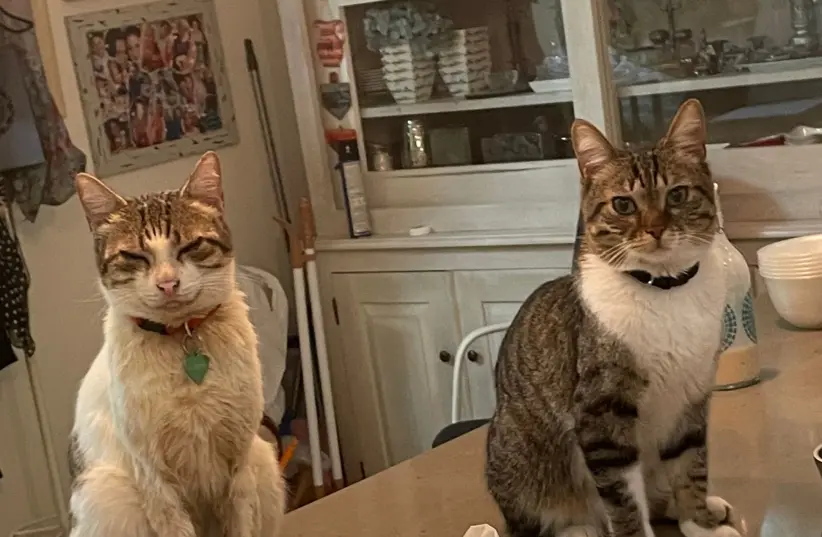Cats are one of the most popular pets in the world. Israel’s stray cat population alone is thought to number at least two million, and many cherish them as beloved family members.
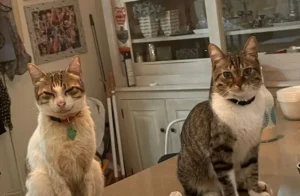
August 8, 2022 marks the 20th ever annual International Cat Day, a holiday where people around the world celebrate the domesticated felines that have nestled their way into our hearts and homes.
Israel of course is no exception, with the Jewish state being home to a very large population of cats.
Of course, whether the cats of Israel know the day is a holiday for them is another story.
International Cat Day
Created in 2002 by the international fund for animal welfare, International Cat Day is celebrated around the world to raise awareness and to appreciate man’s – if not best, then oft-indifferent – friend.
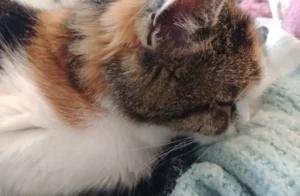
Considering how prominent and dominant cats are around the world, this is unsurprising.
Some estimates put the number of cat owners worldwide at 370 million. But the number of actual cats is much higher. In fact, according to a 2020 study, there were an estimated 600 million pet cats worldwide over a decade ago.
With numbers this high, cats are essentially one of the most abundant species of carnivores either domesticated or in the wild.
And that’s not counting the number of stray cats — also known as feral cats — that exist in the wild, living everywhere from the wilderness to urban alleyways.
Indeed, cats are not only one of the most abundant carnivores — but they’re also very effective hunters and are often seen as apex predators, and the sheer number of cats in an area can have a significant impact on the local ecosystem.
This is a trait that first helped cats endear themselves to humanity. After all, it is their tendency to prey on rodents like rats that have helped keep humanity thriving for millennia.
“My cats break through three layers of trash for fish I threw out, they meow at the bathroom door if I don’t let them in, and they attack my feet while I’m sleeping. Even so, I can’t imagine life without them.”
Atara Beeri, Jerusalem-based cat lover
Cats: Man’s oft-indifferent best friend
This is no exaggeration, with scholars pointing to cats being essential to humanity’s agricultural success, as they protected human grain storage from rodents some 10,000 years ago. In fact, their use to farmers was of such importance that they began to spread as farming did too, and in one case a cat was even found buried in a human grave in Cyprus dating back some 9,500 years ago.
But since then, cats have grown far beyond this initial role, and are now valued the world over. This is despite, or rather because, of their unique quirks, moods, playing habits and propensity for mischief and mayhem.

“My cat literally just ran away from home and I literally see her as going through a teenager phase,” noted Atara Beeri, who lives with two cats in her home in Jerusalem. “She’s right outside our apartment refusing to come in.”
Indeed, it is thanks to everything from their moods, quirks, playing habits, cleanliness and aloof disposition that cats have become seen as beloved and irreplaceable friends, companions and family members.
“My cats break through three layers of trash for fish I threw out, they meow at the bathroom door if I don’t let them in, and they attack my feet while I’m sleeping,” Beeri said. “Even so, I can’t imagine life without them.”
Cats in Israel: Welcome to the Feline state
Israel is no stranger to cats, with these fabulous four-legged felines being as much of a staple to the country as hummus and “Hatikva.”
Bowls of water and cat food or meat leftovers are often seen on streets around Israel and there are some cat lovers spend hundreds or even thousands of shekels a month leaving food regularly at “cat-feeding stations.”
These cats were brought by the British in the 20th century when Mandatory Palestine was suffering from a rat problem. But since then, the number of cats has skyrocketed.
One estimate by the Society for the Prevention of Cruelty to animals in Israel (SPCA), the Jewish state is home to over two million stray cats alone – to say nothing of the number of domesticated cats.
To put that in perspective, if cats were counted among Israel’s demographics, stray cats would rival Arabs as the country’s second-largest demographic.
Jerusalem alone is thought to have anywhere from 240,000 to 300,000 stray cats.
But this isn’t all a good thing.
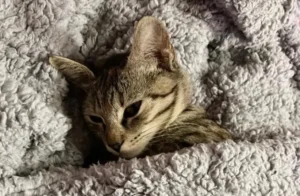
The sad life of a stray
While cats are often seen as rather independent and self-sufficient, living in the wild is far from easy. In fact, many of them actually suffer in poor conditions.
It is for this reason that many Israelis, organizations and even politicians have pushed for greater efforts to protect the well-being of these animals.
In her debut speech in the Knesset, for example, Yesh Atid MK Yasmin Fridman stressed the importance of exactly that and later urged for the establishment of a national street cat authority for this purpose.
As such, for the millions around the world, including in Israel, helping out strays either by rescuing them or making their lives better is an important issue.
“Sometimes it’s a fight with other people who don’t like cats. They think they’re dirty and bring diseases or bad luck, or they just don’t like them. But the truth is that cats are very good for us. They catch mice and snakes, and they’re very loving creatures who need nourishing.”
Galit Uriel
Save a stray: A pawsitive step for cats
For many people, this means rescuing and taking care of stray cats.
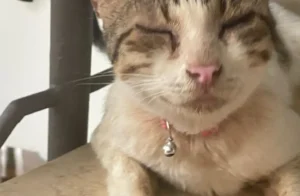
This is something stressed by one Israeli cat lover, Elisheva Jacobson, who rescued stray kittens, Dwight K. Schrute and Fergus, from a kill-shelter that was going to put them down.
“When we took in Dwight and her siblings three years ago, she was abandoned and just a few weeks old. She and her brother Fergus had numerous health problems as well and we managed to nurse them back to health and give them a warm and loving home where they thrive and get the care they need,” Jacobson recounted.
“If they hadn’t been taken in, they probably wouldn’t have survived even a week — in fact, they were a few hours away from being euthanized. It blows my mind to think that their precious lives could have been taken away before they had even been given the chance to live, and it breaks my heart that so many strays aren’t given that second chance.”
Another Jerusalem resident, Daphna Ash, also lives with a cat, Artemis she rescued as a stray kitten and lives with alongside her partner.
“We found Artemis when she was a three month old starving stray. She was the friendliest kitten and mowed at us until we brought her inside and now I can’t imagine life without her,” Ash recounted.
“She’s still the sweetest cuddliest cat and finding her on the street was the best thing that could happen.”
This is also something stressed by Galit Uriel, a Lod resident who helps take care of the local stray cats.
“Where I live, there is a community of people who take care of cats,” Uriel explained. “I live near a big community garden. It’s quite big and there are many cats there – we call them community cats.”
Uriel said that she, along with others, come and brings the cats food on a daily basis.
“I buy it with my own money,” she said. “I do it just because I love cats and they’re our responsibility.”
Overall, Uriel feels that society owes some responsibility to help take care of stray cats.
“We build houses and streets and more, taking away the nature that cats thrive in. They can’t take care of themselves,” she explained. “It’s our responsibility to give them food, water and shelter.”
A solution she proposes would be something like what she has in Lod: Arranged, communal areas for stray cats set aside by local municipalities where people can bring them food and water and help take care of them.
“Sometimes it’s a fight with other people who don’t like cats. They think they’re dirty and bring diseases or bad luck, or they just don’t like them,” Uriel explained. “But the truth is that cats are very good for us. They catch mice and snakes, and they’re very loving creatures who need nourishing.”
Judy Siegel-Itzkovich contributed to this report.

